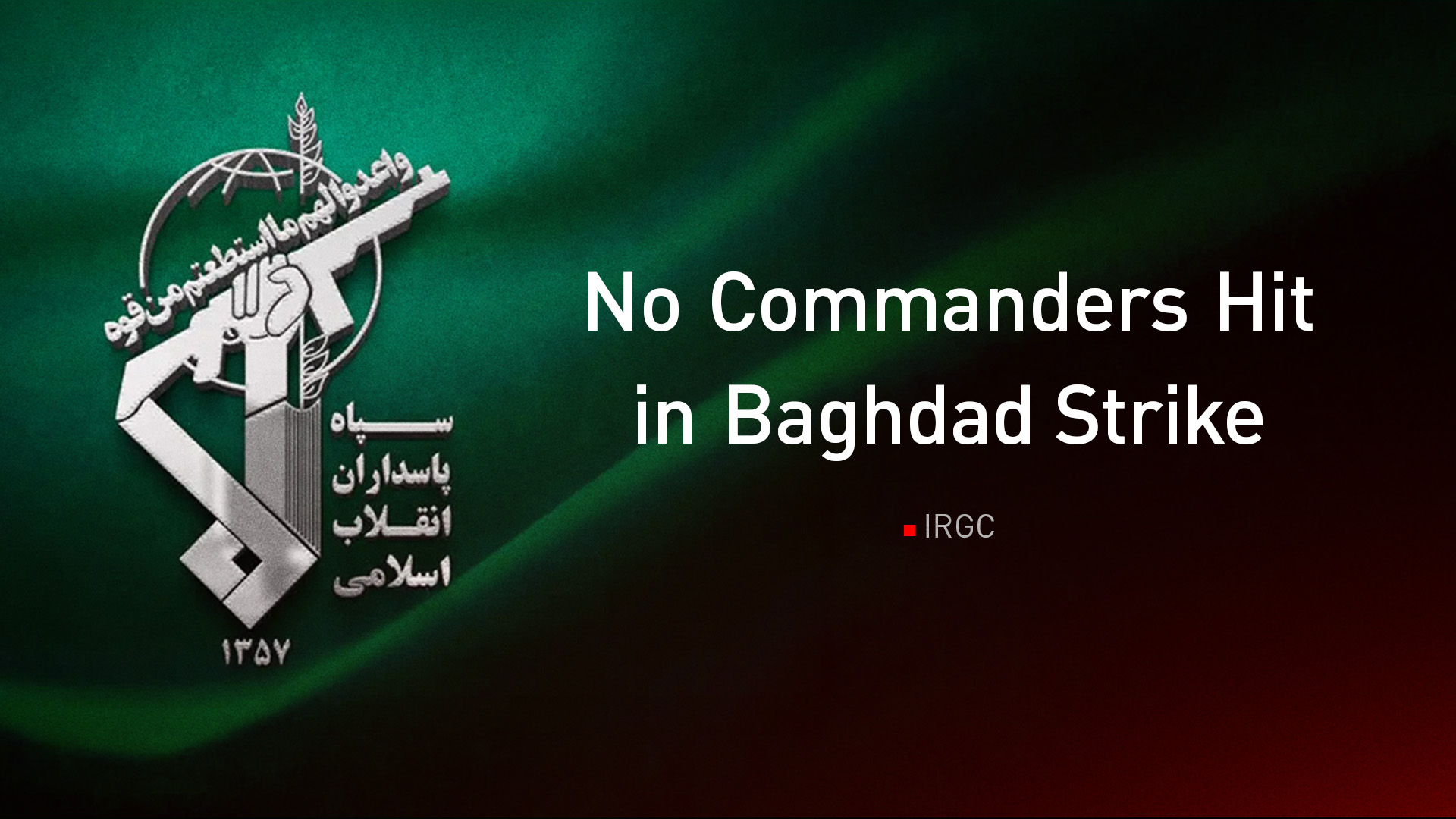IRGC Dismisses Reports of Commanders Targeted in Baghdad Airstrike
Iran's IRGC denies reports of an airstrike targeting IRGC commanders in Baghdad, calling the news completely untrue amid conflicting claims of responsibility that circulated on social media.

ERBIL (Kurdistan24) – Iran’s Islamic Revolutionary Guard Corps (IRGC) denies the targeting of its commanders in Baghdad, issuing a statement to refute rumors that two of its officers were killed in an airstrike in the Iraqi capital last night.
Iran's Tasnim News Agency, citing an official from the Revolutionary Guards, has confirmed that no such incident has occurred in Baghdad recently. The denial from the IRGC came after news of the killing of two of its commanders circulated widely on social media platforms.
The unconfirmed reports were accompanied by conflicting claims regarding the responsible party. Israel's Channel 12 claimed that the alleged attack was carried out by Israeli aircraft, while some Iraqi media reported that the strike was carried out by the United States.
In a related development, Iraq's Federal Ministry of Interior on Sunday also denied reports of a targeted explosion near Baghdad Airport.
In a statement followed by Kurdistan24, the ministry said it "categorically denies the news circulated by some media outlets and social media sites about a targeted explosion near Baghdad Airport."
The ministry affirmed that the security situation in Baghdad is "safe and stable, and no incidents of this kind have been recorded," stressing that the news is "completely untrue and aims to stir up confusion among citizens."
The official statement called on "everyone" not to be drawn into rumors and to rely exclusively on statements issued by official authorities as the sole source of security information.
These denials come against a backdrop of heightened political and security tensions within Iraq, centered on the status of the Popular Mobilization Forces (PMF), locally known as Hashd al-Shaabi.
The PMF is a state-sponsored umbrella organization composed of dozens of armed groups, many of which are Iran-backed militias.
Tensions recently peaked over a controversial parliamentary bill aimed at further strengthening the legal and financial standing of the PMF.
According to a previous Kurdistan24 report, Iraqi Prime Minister Mohammed Shia al-Sudani had conveyed a stark warning from Washington to members of the ruling Shiite Coordination Framework.
The United States reportedly warned Baghdad that it would target 16 bases belonging to armed groups in Baghdad and other provinces if parliament proceeded with the PMF bill.
In response to this pressure and internal divisions, the Coordination Framework convened on August 22 and decided to suspend the bill, with the government opting instead to issue new guidelines to address issues stemming from the original 2016 law that formalized the PMF.
The decision highlighted the significant influence of U.S. pressure and the deep divisions within Iraq's political blocs, including among Shiite parties themselves, over the future of the powerful armed factions.
As political observers highlight, the unsubstantiated reports of a strike tap into a volatile atmosphere where rumors of impending military action have been persistent.
The stern U.S. warning regarding the PMF bill has fueled a climate of anticipation and anxiety, creating fertile ground for speculation about a potential confrontation.
This context is critical, as the rumors of an attack, whether by the U.S. or Israel, are not seen in isolation but as a possible manifestation of the recent threats issued against Iran-backed groups in the country.
The official denials from both Baghdad and Tehran are aimed at quelling public anxiety and controlling the narrative, but the underlying tensions between the Iraqi government, the United States, and the powerful Iran-aligned factions remain a significant source of instability.
The incident underscores the delicate balance Prime Minister al-Sudani's government must maintain as it navigates the competing interests of its key international partner, the United States, and the powerful domestic political and military actors backed by neighboring Iran.